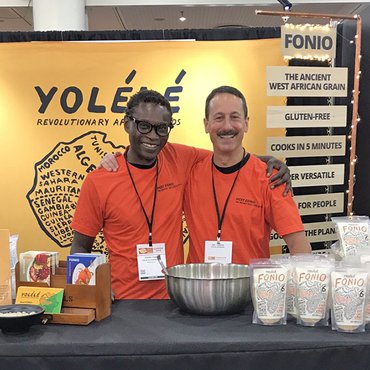Consumers are becoming more conscious of the food they buy, not just in terms of ingredients and sourcing, but the food makers themselves. In fact, values-based shopping was named one of the top trends of 2021 by SFA’s Trendspotter Panel, composed of professionals representing diverse segments in the culinary world.
"For me, 2020 highlighted topics amongst all brands: cultural appropriation, community impact, ethical practices. More than ever, brands are focused on these three categories and trying to align their messaging with this,” said Chef Tu David Phu, a Trendspotter Panel member, in a statement. “Movements like #metoo and #blacklivesmatter have empowered consumers to voice their opinions on what they expect from their favorite brands. This pivot/shift is mainly due to Generation Z coming into the consumer marketplace as adults. Food brands need to shift now as this new demographic is taking over the marketplace."
To capitalize on this trend, some retailers have placed further emphasis on the importance of representing diverse brands on their shelves.
In January, all 164 Giant Food stores began featuring shelf-labels identifying products offered by businesses that are women-, Black-, Asian-Indian-, Hispanic-, LGBT-, Asian-Pacific-, and/or veteran-owned. Last November, Schnuck Markets launched a supplier diversity initiative with the goal of having its supplier reflect the diverse communities that it serves.
The Kroger Co. launched an entire framework for diversity, equity, and inclusion, which features immediate and long-term steps to accelerate and promote change.
For February’s Black History Month, online grocer FreshDirect celebrated its Black-owned vendors with a “Month of Love,” during which the company highlighted brands like Egunsi Foods, Dozen Cousins, Yolélé, Partake, Pipcorn, and Trade Street Jam on its website and social media channels.
“FreshDirect has always prided itself on supporting the growth of small, emerging, and local brands, and this mission includes investing in brands led by people of color that are working toward a more sustainable, inclusive, and just food system,” Scott Crawford, chief merchandising officer at FreshDirect told SFA News Daily. “These businesses are not only behind some of the most exciting products out there, but are also dedicated to positive social and economic change. Each of them, in their own way, exemplifies a powerful combination of innovation, goodwill, and a commitment to deliciousness. We’re truly honored to have them in the FreshDirect family.”
Born and raised in Senegal, Pierre Thiam, a celebrated chef, restaurateur, award-winning cookbook author and entrepreneur, is a huge part of how West African food and culture came to America. Along with co-founder Philip Teverow, Thiam founded Yolélé to share Africa’s ingredients and cuisines with the world, as well as creating economic opportunities for smallholder farming communities and supporting biodiverse, regenerative, resilient food systems.
Thiam, along with Teverow, was honored with an SFA 2021 Leadership Award for Vision. The company recently debuted its new line of West African-inspired Fonio Chips at the virtual Specialty Food Live! event, adding to its line of fonio-based products.
“When I first started working in restaurants in New York City, although it was called the food capital of the world, African food was almost inexistent,” Thiam told SFA News Daily. “As a chef, I saw an opportunity. I grew up in Senegal a country with a rich food culture that has played a major role in influencing other foods from the diaspora.”
Thiam explained that the cuisines of West Africa have found their way across the Atlantic to be “reinvented in multiple creative ways.”
“From Brazil to New Orleans, from Jamaica to Haiti, the same foundational recipes continued to grace our food gatherings,” he noted. “There is something to be said about the resiliency of a cuisine that has not only survived, but thrived. If anything, this cuisine should be celebrated. Diversity in the food industry means to also recognize the importance of African diaspora cuisines.”
When asked about his advice for Black-owned brands looking to enter or grow in the food industry, Thiam suggested that authenticity is key and to take pride in telling their story.
“In a world where nothing is handed to us without a struggle, finding inspiration and motivation in our roots can be transformational in face of the many challenges that we will be facing.”
For retailers who want to ensure better diversity and representation on their shelves, Thiam advised them to be intentional with their actions.
“Many so-called minority businesses don’t have access to financial or other types of support,” he said. “Retailers must figure out ways to facilitate their presence on their shelves. It could be done by setting up programs specifically designed for minority brands, in order to accelerate the implementation of the required standards. It is not charity. It is actually self-serving, considering that those retailers with a diverse representation on their shelves are the ones who will have access to a greater diversity of customers.”
Related: Restaurant-Level Products, Values-Based Shopping Top Specialty Food Live! Trends; Stop & Shop Invests in Minority Owned Business Development.

